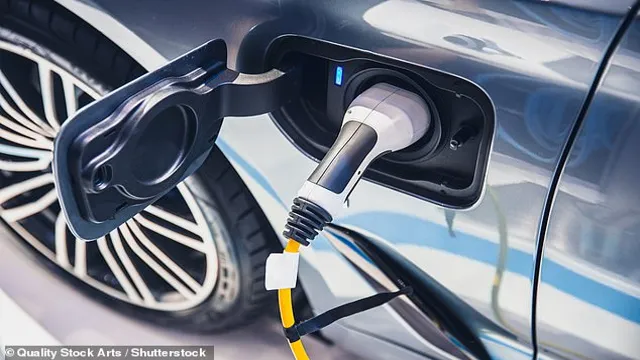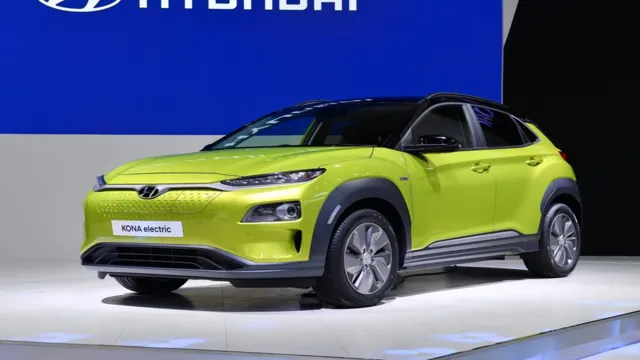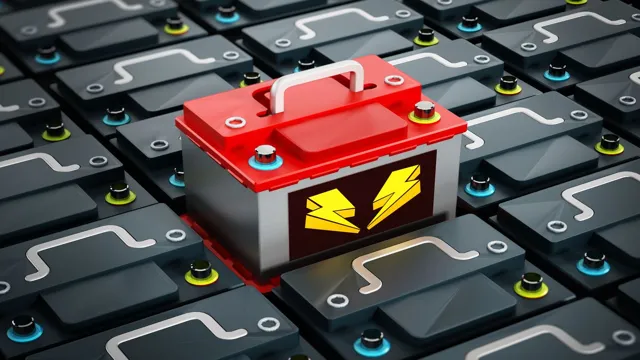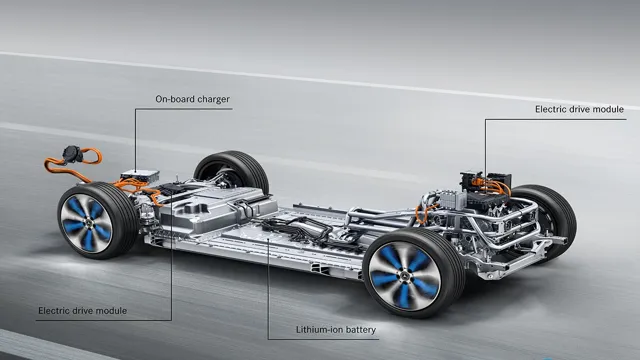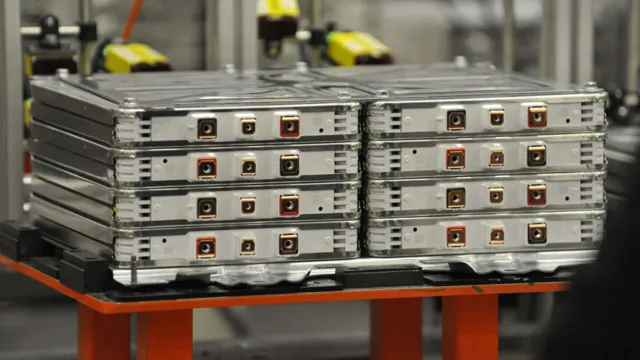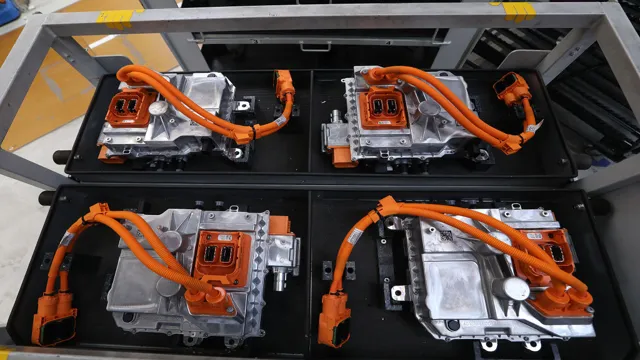Breaking the Myth: Embracing the Sustainability of Reusable Electric Car Batteries
Electric cars have taken the world by storm, with their sleek designs, eco-friendly profiles, and green features. But one question that lingers in the minds of many is whether electric car batteries are reusable. In a world that increasingly demands sustainability, people want to know if these high-tech batteries can be repurposed.
The answer isn’t a simple one, as it depends on several factors. While some components of electric car batteries can be salvaged for reuse, the process isn’t as straightforward as one might imagine. In this blog post, we’ll explore the concept of reusing electric car batteries and see what the future holds for this innovative technology.
Overview of Electric Car Batteries
Electric car batteries are an important component of electric vehicles and are a key factor in their rising popularity. Electric car batteries are rechargeable, which means they can be reused. However, the lifespan of an electric car battery can vary depending on the make and model of the car, as well as the usage and charging habits of the driver.
While electric car batteries can be reused, they do have a limited lifespan, and eventually, they will need to be replaced. Some manufacturers offer battery replacement programs, while others do not. It’s important to keep in mind that the cost of battery replacement can be expensive, so taking care of your electric car battery and following the recommended charging and maintenance guidelines can help extend its lifespan and save you money in the long run.
Overall, electric car batteries are reusable, but they do require maintenance and replacement as they age.
Composition of Electric Car Batteries
The composition of electric car batteries is quite different from traditional lead-acid car batteries. Most electric car batteries use lithium-ion technology, which is made up of several cells or modules connected together. These cells contain a cathode, an anode, and an electrolyte that work together to produce an electric current.
The cathode is usually made of cobalt, nickel, or manganese, while the anode is made of graphite. The electrolyte is a liquid or gel that allows ions to move between the electrodes. The precise composition of these materials can vary depending on the manufacturer and the specific application of the battery.
One of the advantages of lithium-ion batteries is their energy density, which allows them to store more energy per unit weight or volume than traditional car batteries. This allows electric cars to have longer ranges on a single charge, making them more practical for everyday use.
Types of Electric Car Batteries
Electric car batteries are an essential component of electric cars, as they store the energy required to power these vehicles. There are several types of electric car batteries available in the market, including lead-acid, nickel-metal-hydride (NiMH), and lithium-ion (Li-ion) batteries. Lead-acid batteries are the oldest and most common type of electric car batteries, but they are also the least efficient.
NiMH batteries are an improvement over lead-acid batteries, providing better efficiency and a longer lifespan. However, the most advanced and widely used electric car batteries are Li-ion batteries. They offer higher energy density, making them more efficient and capable of storing more energy in smaller, lighter batteries.
Moreover, Li-ion batteries are also faster charging, self-discharge slower, and have a longer lifespan compared to previous battery technologies. When selecting among different electric car batteries, it’s essential to consider factors such as cost, quality, and performance to ensure you make the best choice.
Current Recycling Options for Electric Car Batteries
Are electric car batteries reusable? While electric car batteries cannot be reused for the same purpose as they were initially made for, they can still be recycled. Currently, there are various recycling options for electric car batteries to extract valuable materials such as cobalt, nickel, and lithium, which can be used to make new batteries or other products. However, the process of recycling electric car batteries can be complex and expensive, and not all materials can be recovered.
Additionally, there are concerns regarding the environmental impact of the recycling process. As the demand for electric cars continues to grow, it is important to find more sustainable and efficient ways to reuse and recycle their batteries.
Reusing Electric Car Batteries
As the popularity of electric cars continues to rise, more attention is being paid to the issue of what to do with the batteries once they are no longer usable in cars. While recycling is currently the most common option for disposing of electric car batteries, there are some other options worth exploring. One possibility is to reuse the batteries for purposes other than powering cars.
For example, they can be used to store electricity generated by solar panels for use in the home. This can help to reduce the strain on the grid during peak hours and make renewable energy more viable. Reusing electric car batteries can also provide a cost-effective alternative to new batteries for applications such as backup power in data centers or for powering remote off-grid sites.
While there are challenges involved in repurposing electric car batteries, such as standardizing the different types of batteries and ensuring they are safe for reuse, it’s clear that there is potential for extending their useful lifespan beyond their initial purpose.
Battery Recycling Programs
Electric car owners have probably wondered what happens to their batteries once they reach the end of their lives. Fortunately, there are several recycling options available. Most major automakers offer some form of battery recycling program.
For example, Tesla has developed its own recycling facility in Nevada that uses processes to safely extract valuable metals such as lithium and nickel from batteries. Nissan offers battery collection and recycling services for Leaf owners in Japan, Europe, and the United States. Additionally, some companies like Retriev Technologies and Li-Cycle have already established themselves as leaders in the battery recycling industry.
As electric cars become more popular, recycling programs are becoming increasingly important to ensure that precious resources are preserved, and waste is minimized. While these programs may require a bit of effort from electric car owners, they provide the assurance that their batteries are not contributing to environmental degradation.
Environmental Impact of Recycling
When it comes to electric car batteries, recycling is a crucial aspect of minimizing their environmental impact. Currently, there are a few different options for recycling these batteries. One method involves breaking down the battery components and recovering the valuable materials, such as lithium and cobalt, which can then be reused in new battery production or other industries.
Another option is to reuse the batteries themselves, either by repurposing them for other applications or using them in stationary energy storage systems. However, despite these efforts, there are still concerns about the overall environmental impact of the electric car battery recycling process. It’s important for manufacturers and consumers alike to prioritize sustainability in all stages of the production and lifecycle of these batteries in order to minimize their overall environmental impact.
Future of Electric Car Batteries
The future of electric car batteries is looking bright, especially in terms of their reusability. Electric car batteries are designed to last for many years, but eventually, they will need to be replaced. However, that does not mean that the old batteries are simply discarded.
In fact, there are already many companies working on ways to reuse and repurpose these batteries. One exciting possibility is using them as stationary storage devices to store energy from renewable sources like solar and wind power. This could help reduce the demand for new battery production while also providing a sustainable solution for energy storage.
Another possibility is repurposing the batteries for second-life applications, such as powering electric boats or even homes. The possibilities are endless, and it’s exciting to see the industry exploring new ways to make electric car batteries even more sustainable. So to answer the question, yes, electric car batteries are reusable, and we can expect to see more innovative ways to repurpose them in the future.
Advancements in Battery Technology
The advancements in battery technology have been monumental for the automotive industry, particularly for the production of electric cars. As the demand for cleaner energy and reduced greenhouse emissions grows, the need for reliable and efficient electric car batteries has become increasingly important. The future of electric car batteries looks bright with many manufacturers investing in research and development to improve battery efficiency, reduce costs, and increase driving ranges.
Many companies are experimenting with solid-state batteries that promise better performance and increased safety. These batteries don’t require liquid electrolytes, which reduces the risk of fire and explosion; this would offer peace of mind to drivers. With the promise of better battery technology, electric cars will become increasingly popular as a more environmentally friendly alternative to fossil-fuel-powered cars.
As the technology improves, it will allow electric cars to travel longer distances, charge faster, and become more affordable for the everyday consumer. The future of electric car batteries is bright, and it is an exciting time to be a part of the electric car revolution.
Potential for Battery Reuse and Recycling
The future of electric car batteries is looking bright thanks to the potential for battery reuse and recycling. With the increasing demand for electric cars, there will be a significant amount of batteries reaching the end of their lifespan. However, these batteries still have a lot of potential, as they can be repurposed for use in other industries such as home energy storage or even as backup power for renewable energy sources.
This creates a new market for used electric car batteries, and companies are already starting to explore this opportunity. Furthermore, recycling also plays a crucial role in the future of electric car batteries. As the demand for electric cars continues to grow, so does the need for recycling the batteries.
With the increasing demand for raw materials like lithium, cobalt, and nickel, recycling used batteries can help to conserve these valuable resources. This not only reduces the environmental impact of mining for new materials but also creates a sustainable and circular economy for the electric car industry. Overall, the future of electric car batteries is looking optimistic, with new opportunities for battery reuse and recycling paving the way for a cleaner, greener future.
Conclusion: The Reusability of Electric Car Batteries
In summary, the answer to the question “Are electric car batteries reusable?” is a resounding YES! Not only can they be reused for energy storage in other vehicles or applications, but their components and materials can also be recycled. So, the next time you hear someone say that electric car batteries are a one-time use item, you can confidently enlighten them on the endless possibilities for repurposing and sustainability in the world of EVs.”
FAQs
How many times can an electric car battery be reused?
Electric car batteries can typically be reused for up to 10 years before they need to be replaced, but this can vary depending on how often the battery is charged and discharged.
Can electric car batteries be recycled?
Yes, most electric car batteries can be recycled. In fact, many manufacturers offer recycling programs for their batteries to ensure that they are disposed of properly.
How much does it cost to replace an electric car battery?
The cost to replace an electric car battery can vary widely depending on the make and model of the car, as well as the type and capacity of the battery. Replacement costs can range from a few thousand to tens of thousands of dollars.
Can electric car batteries be charged with solar panels?
Yes, it is possible to charge an electric car battery with solar panels. This is known as solar charging, and it can be a sustainable and cost-effective way to power your electric vehicle.
